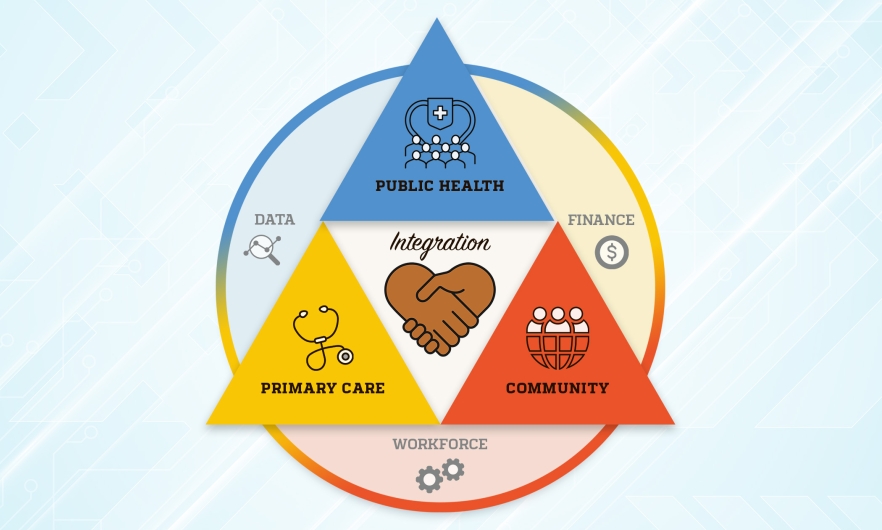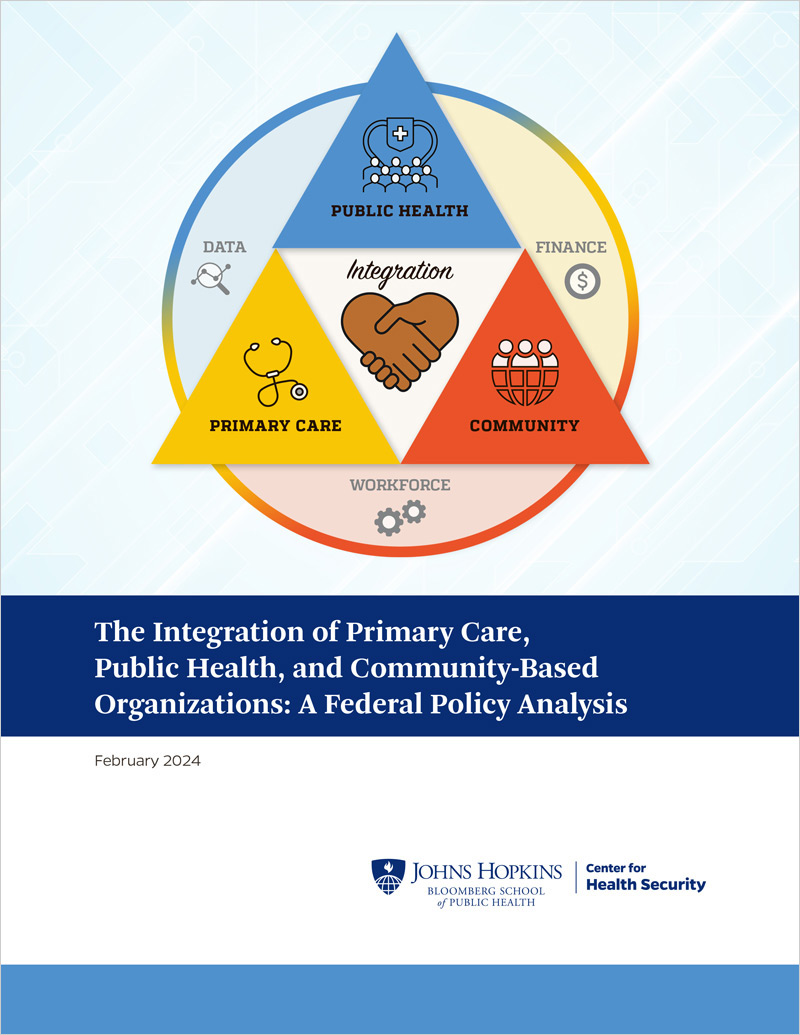New policy analysis offers pathways for collaboration across primary care, public health, and community-based organizations
Center News

March 19, 2024 – In a new comprehensive study, the Johns Hopkins Center for Health Security underscores the critical need for collaboration across primary care (PC), public health (PH), and community-based organizations (CBOs) to fortify healthcare systems and enhance emergency response capabilities. The report is titled The Integration of Primary Care, Public Health, and Community-Based Organizations: A Federal Policy Analysis.
For the project, sponsored by the Commonwealth Fund, the Center’s team of experts utilized a mixed-methods, rapid-cycle approach to meticulously analyze existing literature, conduct environmental policy scans, interview key informants, convene expert advisory working groups, and examine successful case studies.

Through these efforts, the authors categorized their findings and recommendations into 3 key domains:
- Funding & Payment Model Reform: The report advocates for Congress to allocate sustainable core operational funding for PC and PH, tailored to local needs. It urges the Centers for Medicare and Medicaid Services (CMS) to incentivize states to direct a significant portion of health spending towards primary healthcare and public health services. Moreover, recommendations include the promotion of collaborative care models, expansion of funding for closed-loop referral systems, and the inclusion of public health in innovative payment models.
- Data Interoperability: To enhance collaboration, the report emphasizes the importance of leveraging standards and policies to improve data exchange among electronic health records (EHR) systems. It calls for the removal of barriers hindering interoperability, the development of strategies for rapid enforcement of information-sharing requirements, and investment in updated health information technology (IT) infrastructure.
- Workforce Development: The report proposes measures to align medical residency programs with public health and CBOs, expand funding for healthcare education and training programs, and incentivize engagement in team-based practices. Recommendations also include the establishment of a national Public Health Service Corps and increased support for health workforce loan repayment programs.
"By implementing the recommended reforms, we can enhance healthcare services, improve emergency response capabilities, and ultimately, advance health outcomes for individuals and communities nationwide," said Dr. Tener Goodwin Veenema, project lead and senior scholar at the Johns Hopkins Center for Health Security.
For media inquiries, please contact Cagla Giray at cgiray1@jhu.edu.
To access the full report, visit https://centerforhealthsecurity.org/sites/default/files/2024-03/240212-1540-pc-ph-report.pdf.
